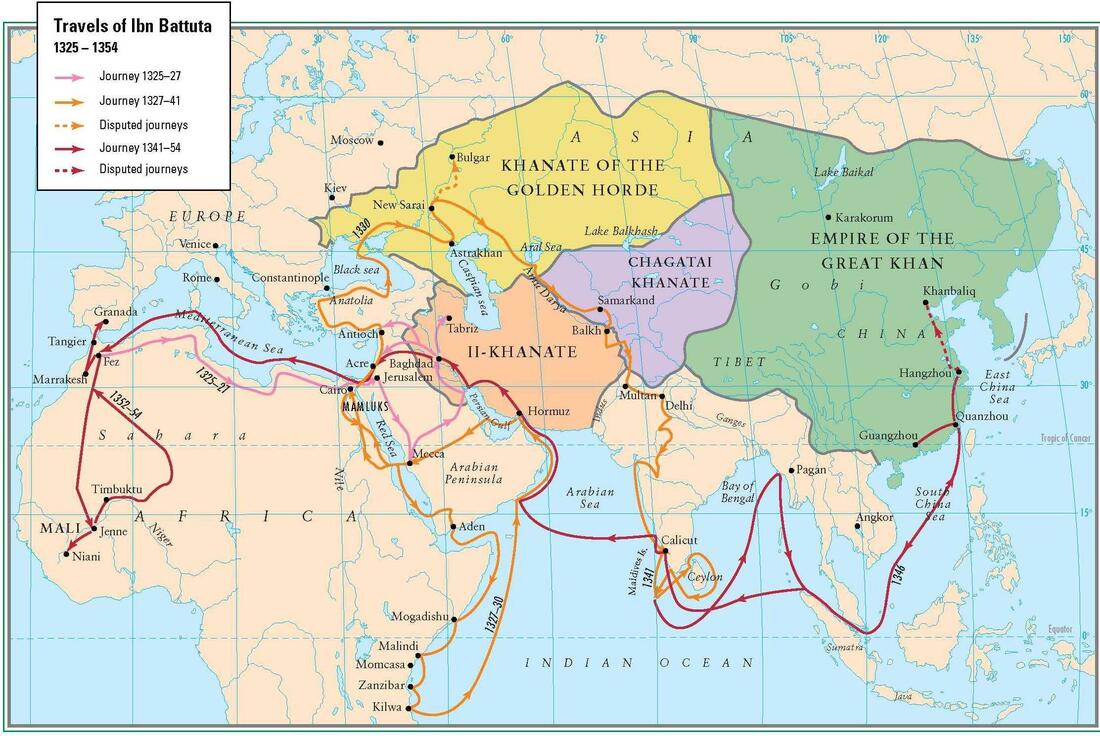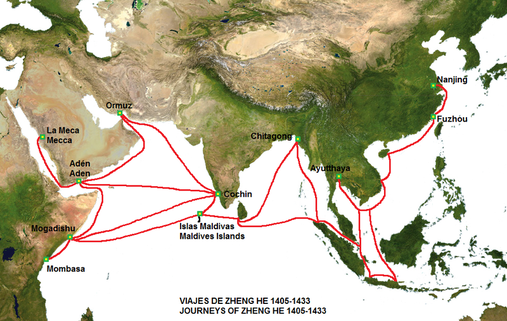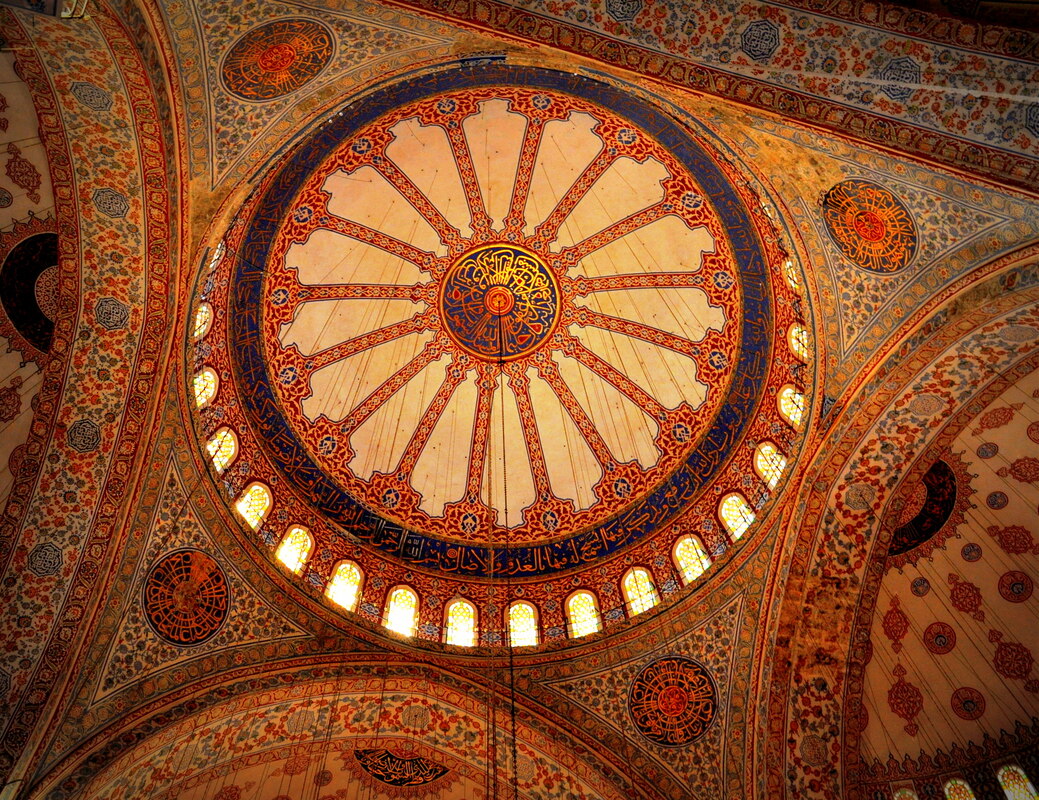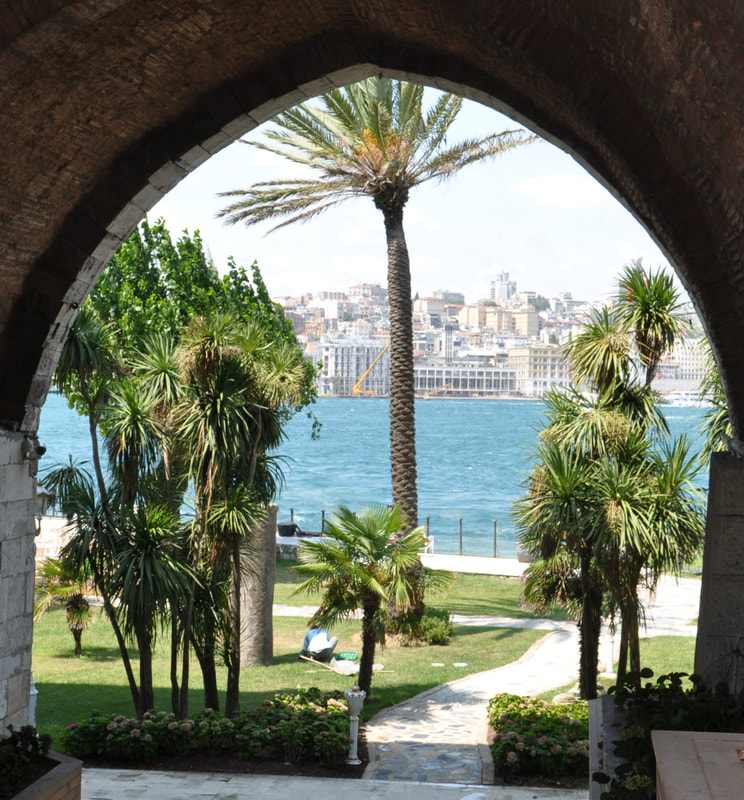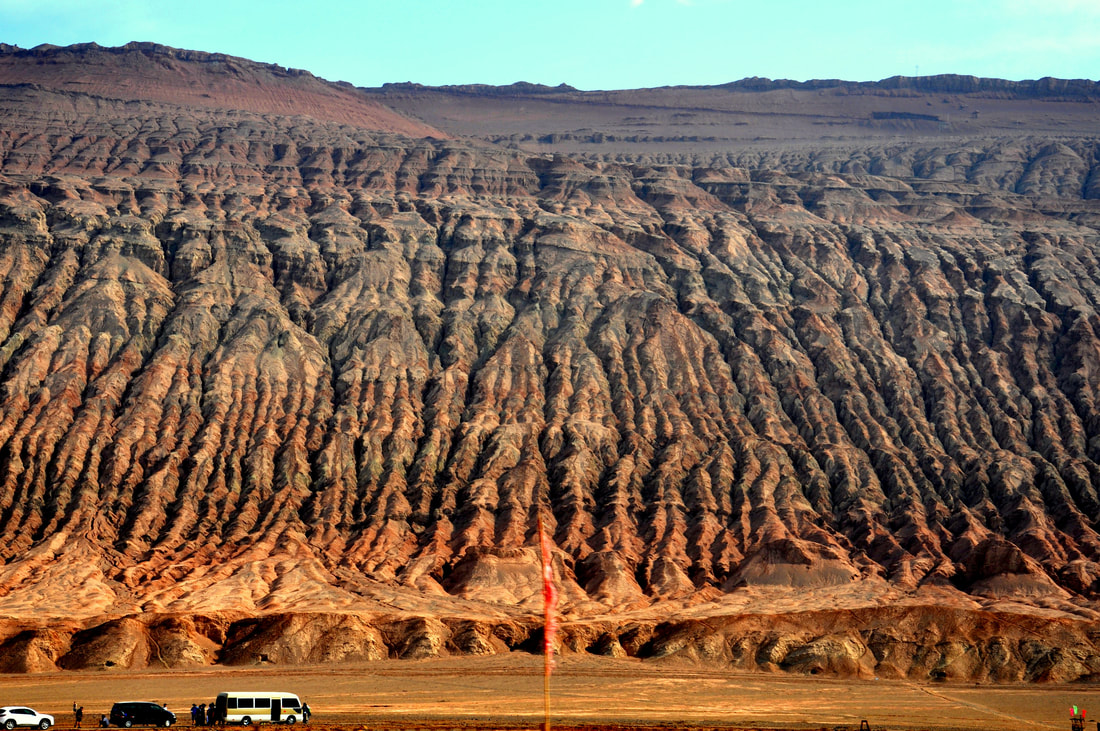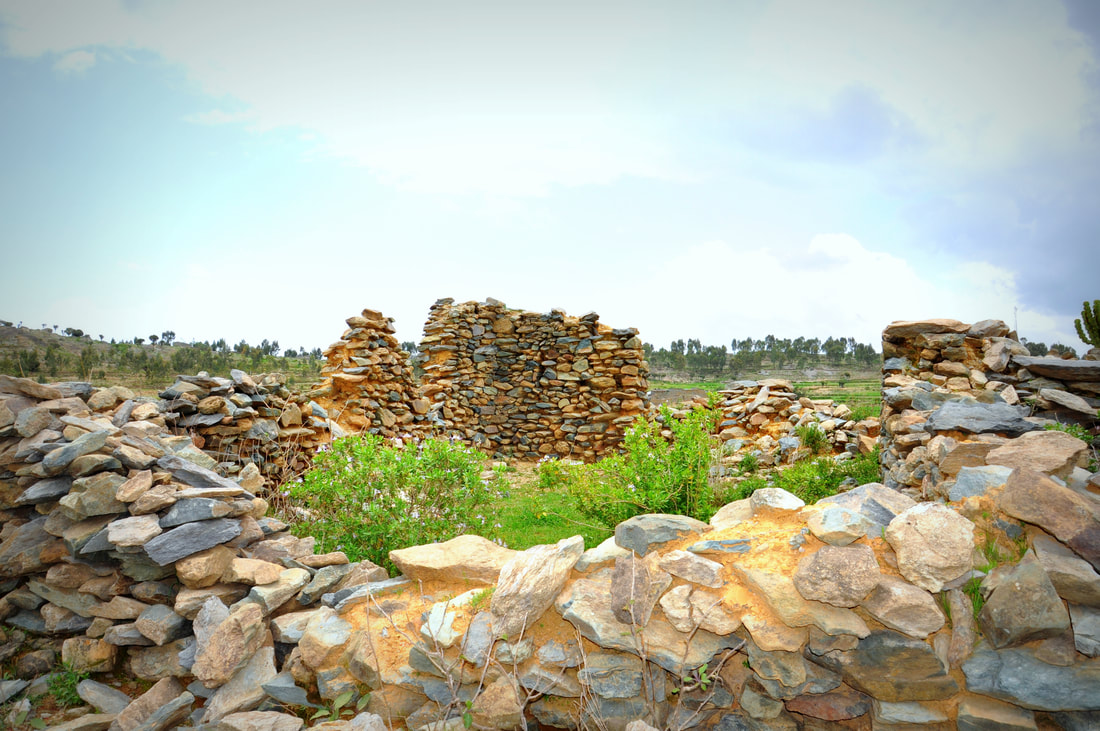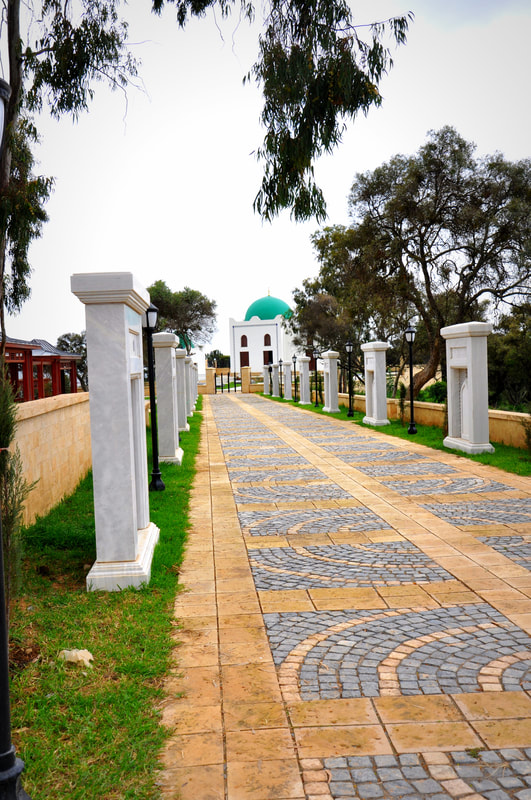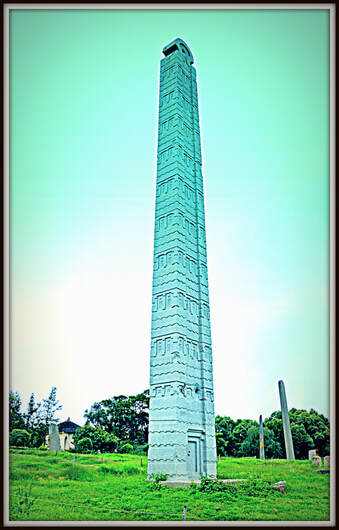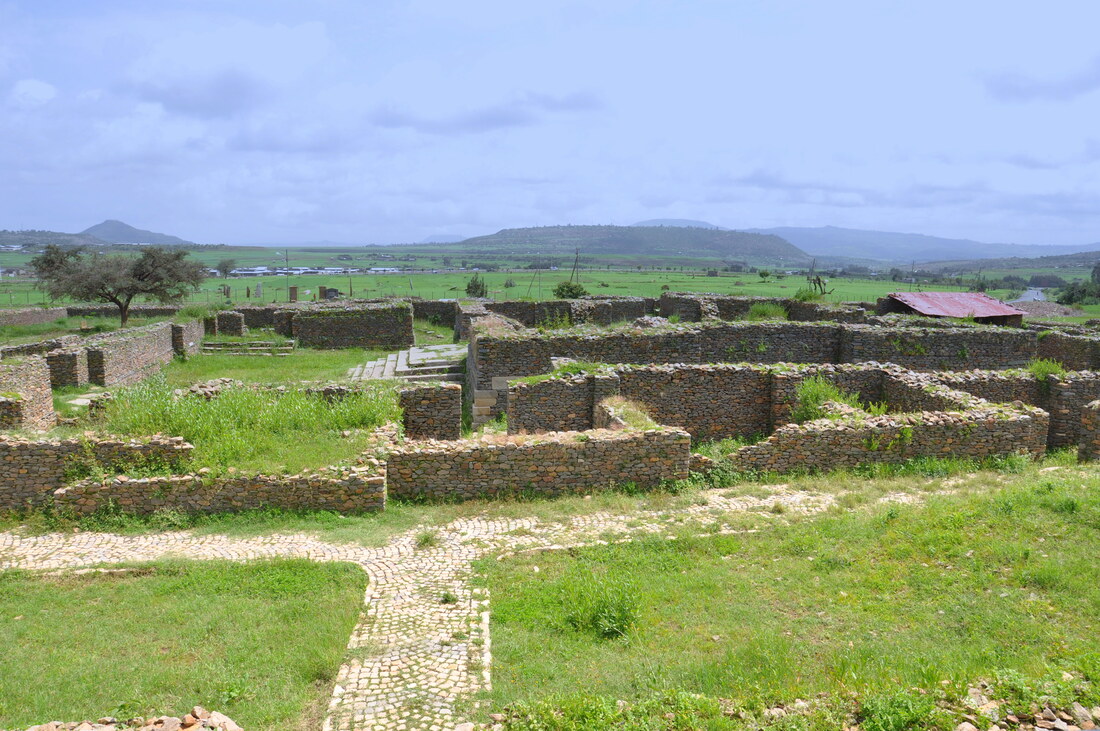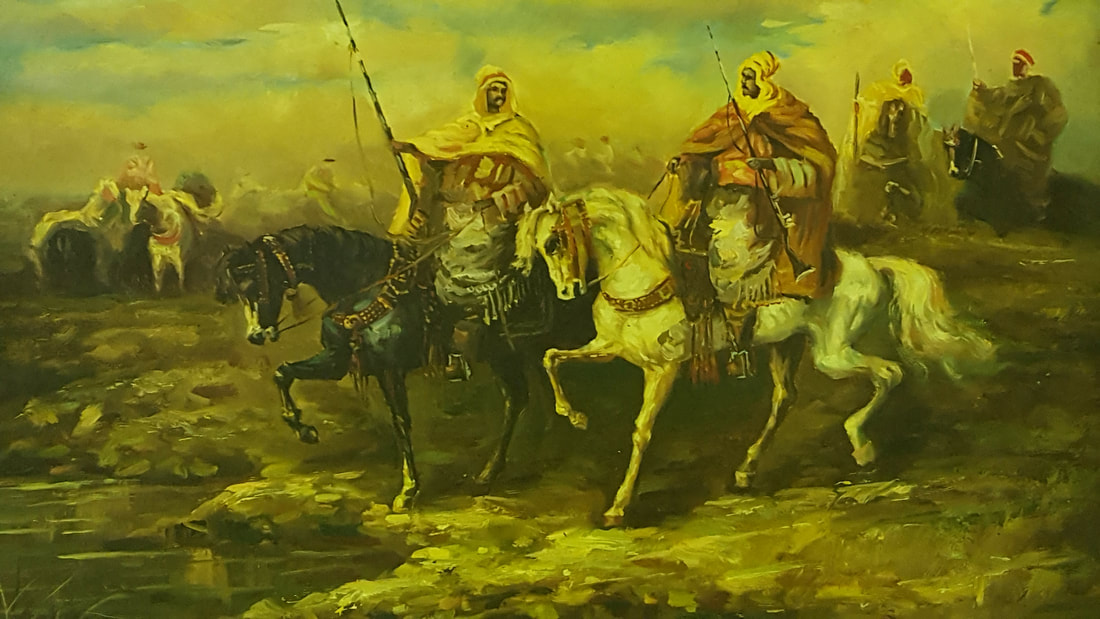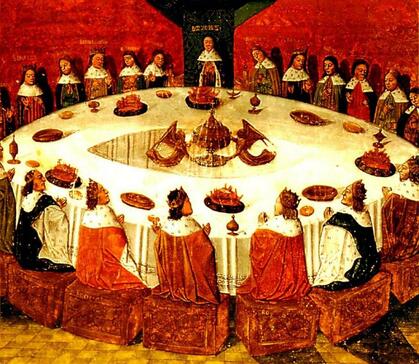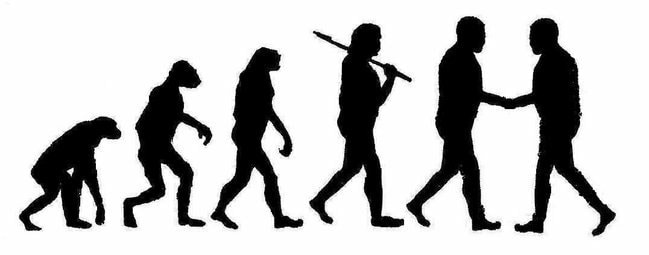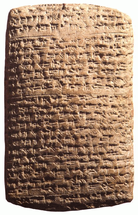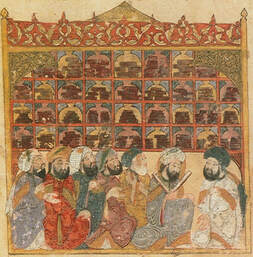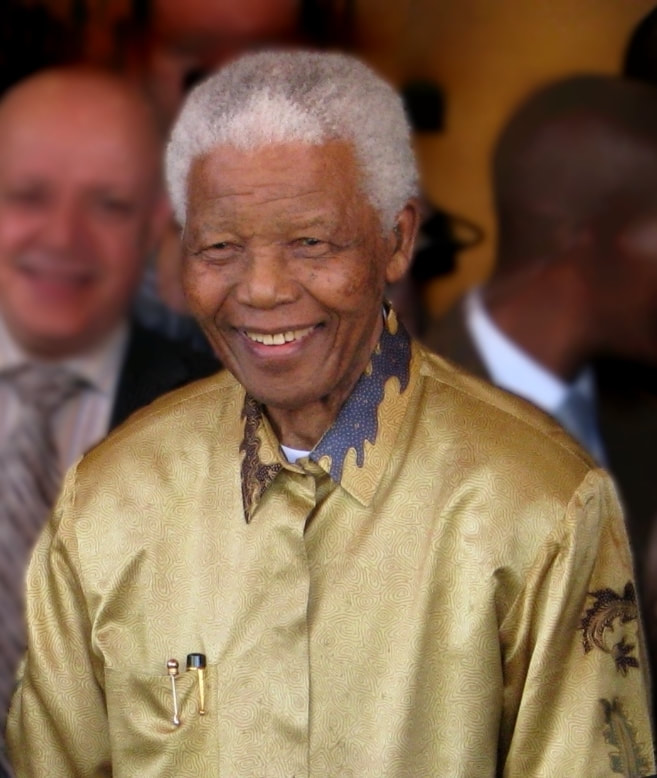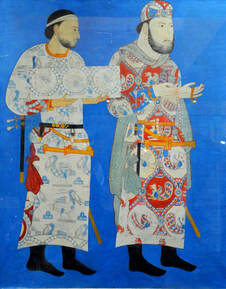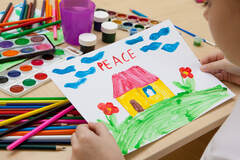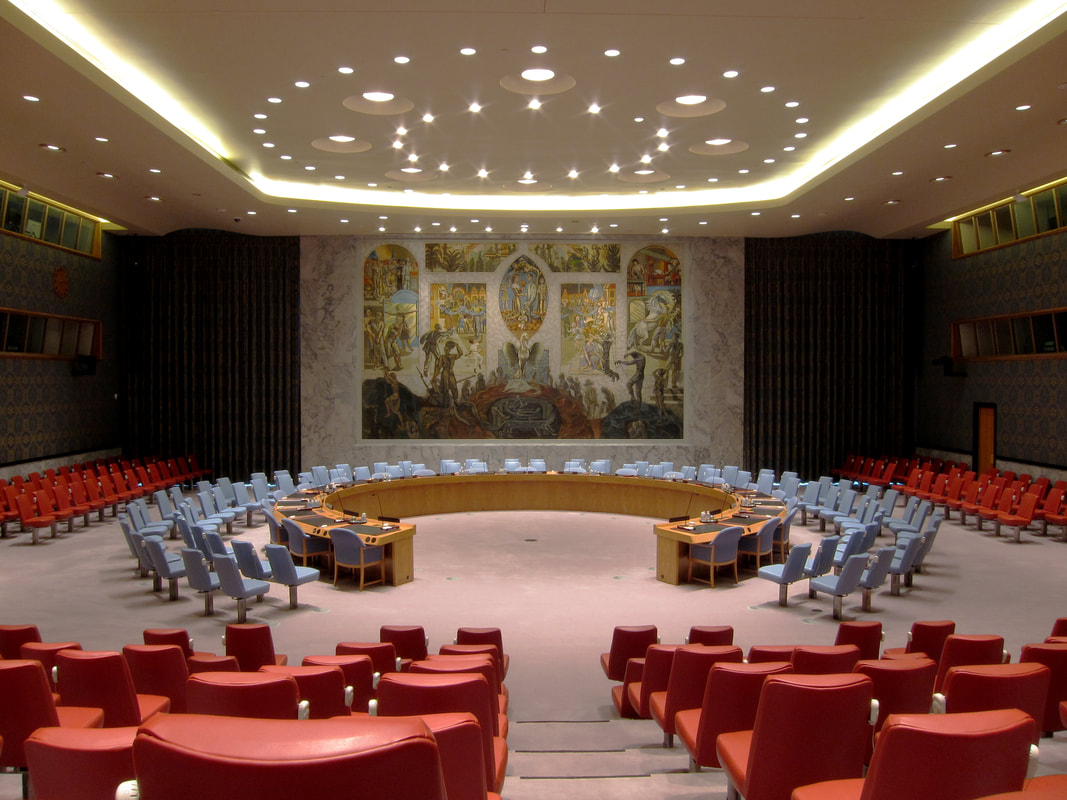Proposal for:
Silk Roads Peace Education and Art Center(s)
وَالسَّمَاءَ رَفَعَهَا وَوَضَعَ الْمِيزَانَ
Mizan - Balance
“And the heaven He raised it and He has set up the balance.”
Al-Quran Surah 55. Ar-Rahman, Ayah 7
Mizan - Balance
“And the heaven He raised it and He has set up the balance.”
Al-Quran Surah 55. Ar-Rahman, Ayah 7
“In the Quran the word “balance” (mizan) and all its derivatives are used 23 times. In the Quran, “transgression” (israf) means the decline of the balance and is being condemned.”
www.quranmiracles.com/2015/04/balance-and-transgression/
“We have already sent Our messengers with clear evidences and sent down with them the Scripture and the balance that the people may maintain [their affairs] in justice.”
https://quran.com/57/25
www.quranmiracles.com/2015/04/balance-and-transgression/
“We have already sent Our messengers with clear evidences and sent down with them the Scripture and the balance that the people may maintain [their affairs] in justice.”
https://quran.com/57/25
The Peace Education, Silk Roads/Trans-Saharan Trade Routes Art & Research Center
- Ancient Trade-Routes and Arts Center
- Ibn Battuta and Zheng He Research and Resource Center
- Peace Education: Diplomacy, Conflict Resolution Strategies & Counseling
Along the Silk Roads
Along the Trans-Saharan Trade Routes
in North Africa
The Obelisk of Axum, Tigray region in North Ethiopia is 24-metre-tall granite stele from the 4th-century ACE.
"Situated in the highlands of northern Ethiopia, Aksum symbolizes the wealth and importance of the civilization of the ancient Aksumite kingdom, which lasted from the 1st to the 8th centuries AD. The kingdom was at the crossroads of the three continents: Africa, Arabia and the Greco-Roman World, and was the most powerful state between the Eastern Roman Empire and Persia. In command of the ivory trade with Sudan, its fleets controlled the Red Sea trade through the port of Adulis and the inland routes of north eastern Africa." https://whc.unesco.org/en/list/15
"Situated in the highlands of northern Ethiopia, Aksum symbolizes the wealth and importance of the civilization of the ancient Aksumite kingdom, which lasted from the 1st to the 8th centuries AD. The kingdom was at the crossroads of the three continents: Africa, Arabia and the Greco-Roman World, and was the most powerful state between the Eastern Roman Empire and Persia. In command of the ivory trade with Sudan, its fleets controlled the Red Sea trade through the port of Adulis and the inland routes of north eastern Africa." https://whc.unesco.org/en/list/15
The Aksumite Empire had a longstanding relationship with Islam. According to ibn Hisham, when Muhammad SWT faced oppression from the Quraysh, he sent a small group that included his daughter Ruqayya and her husband Uthman to Axum. Sahama, the Aksumite monarch, gave them refuge and protection.
He refused the requests of the Quraish clan to send these refugees back to Arabia. These refugees did not return until the sixth Hijri year (628), and even then many remained in Ethiopia, eventually settling at Negash in what is now the Mibraqawi Zone.
Download Ibn Hisham's Life of Muhammad at:
https://archive.org/details/SiratIbnHishamBiographyOfTheProphet-
He refused the requests of the Quraish clan to send these refugees back to Arabia. These refugees did not return until the sixth Hijri year (628), and even then many remained in Ethiopia, eventually settling at Negash in what is now the Mibraqawi Zone.
Download Ibn Hisham's Life of Muhammad at:
https://archive.org/details/SiratIbnHishamBiographyOfTheProphet-
It is critically important that the presentation of the Peace Education, Silk Roads and Art Center(s) information be designed to appeal to both secular and Muslim audiences. Balance is needed to ensure that all audiences can appreciate the value of peace education, the history and splendor of the ancient Silk Road civilizations, and the arts they produced historically and still produce today. Currently many or most non-Muslims think of Muslims as terrorists, not people of peace, representatives of great civilizations past and present, and producers of great arts (and sciences).
Islamic Resource Center Design
- Library: books, journals, maps and online resources including website with online resources for education and research (materials should not be removed from the library - browsing only).
- Display Hall(s) with artifacts from the Silk Roads as well as paintings, photographs, سجادة sajjāda from different nations/cultures, etc.
- Classroom(s) for Workshops, e.g. Conflict Resolution Strategies and Diplomacy Classes
- Small shop with Silk Road and North African souvenirs, books, etc.
- At least two offices, one for research, another for business, accounting, soliciting additional funding, etc.
A few of the hundreds of online educational resources about famous Muslim travelers and geographers
- Medieval Sourcebook: Ibn Battuta: Travels in Asia and Africa 1325-1354 https://resources.saylor.org/wwwresources/archived/site/wp-content/uploads/2010/12/Ibn-Battuta-Travels-in-Asia-and-Africa-1325-1354.pdf
- The Travels of Ibn Battuta - Virtual Tour, U.C. Berkeley
- İbn Battuta - İbn Battuta Seyahatnamesi.pdf https://www.academia.edu/32120133/%C4%B0bn_Batt%C3%BBta_-_%C4%B0bn_Battuta_Seyahatnamesi.pdf
- Document A: Ibn Battuta’s Rihla(Part 1) (High School/College with vocabulary & questions - STANFORD HISTORY EDUCATION GROUP) http://www.houlehistory.com/uploads/2/5/6/9/25696840/ibn_battuta.pdf
- The Travels and Journals of Ibn Battuta, Edited by Clinton Grant from J. Arno & H. Grady, “Ibn Battuta: A View of the 14th-Century World” (NCHS) (high School/college with questions) https://people.hofstra.edu/alan_j_singer/CoursePacks/TheTravelsandJournalsofIbnBattuta.pdf
- Travel Account of Ahmad ibn Muhammad ibn Nasir al-Darʻi https://www.wdl.org/en/item/16770/
- Ibn Battuta Lesson Plan for children - with Quizzes https://eli.kau.edu.sa/Files/126/Files/131797_The%20Travels%20of%20Ibn%20Battuta%20104.PDF
- Ibn Battuta: Travels in Asia and Africa 1325-1354 https://sourcebooks.fordham.edu/source/1354-ibnbattuta.asp
- al-Bakri - Abū ʿUbayd ʿAbd Allāh ibn ʿAbd al-ʿAzīz ibn Muḥammad ibn Ayyūb ibn ʿAmr al-Bakrī, or simply Al-Bakri (Arabic: أبو عبيد عبدالله بن عبد العزيز البكري) (c. 1014–1094) was an Andalusian Arab historian and the greatest geographer of the Muslim West. http://www.napavalley.edu/people/shutton/Documents/Readings/18.Abu%20Ubaydallah%20al-Bakri_Description_of_Ghana.pdf
- There are thousands of other very valuable resources. A short bibliography of Silk Road research can be found at: http://www.silkroadvirtualuniversity.org/history-bibliography.html
Roundtable Peace Education (sample) Workshops
|
Active Listening & Counseling
|
|
A Simple Sample Curricula - Free download
| roundtable_peace_ed_workshops_counseling_confl_res_may_17_2019_pdf.pdf | |
| File Size: | 1103 kb |
| File Type: | |
Diplomacy Education
Diplomacy may be the most difficult art of all to master. How can any person look a malicious, sadistic cold-blooded killer in the eye, shake his hand and then prepare to negotiate some kind of terms? It takes a transcendent level - a mastery of self-control few people ever learn. Yet, there are times exactly this must be done to open a road to peace and end the killing.
How is it possible? Some things can help. For example, B.F. Skinner in his book: "Beyond Freedom and Dignity" explained that people are the products of their conditioning (learning). People are the way they are for reasons. Though many - especially Muslims - very much dislike Sigmund Freud, some of his observations and conclusions have validity also, in my opinion. For example: "People are primarily motivated by unconscious forces."
In my opinion, to understand compassion we must at times let go of our individual and tribal egos, yet keep our goals in mind. Only by communicating can we ever hope to build bridges between our differences. Maybe we cannot win, but at times it is possible to minimize our losses, and over time, perhaps mutual understanding can grow.
How is it possible? Some things can help. For example, B.F. Skinner in his book: "Beyond Freedom and Dignity" explained that people are the products of their conditioning (learning). People are the way they are for reasons. Though many - especially Muslims - very much dislike Sigmund Freud, some of his observations and conclusions have validity also, in my opinion. For example: "People are primarily motivated by unconscious forces."
In my opinion, to understand compassion we must at times let go of our individual and tribal egos, yet keep our goals in mind. Only by communicating can we ever hope to build bridges between our differences. Maybe we cannot win, but at times it is possible to minimize our losses, and over time, perhaps mutual understanding can grow.
What is diplomacy?
In international relations it’s the management of relationships between countries.
In interpersonal relationships it’s the skill needed to make and/or keep everyone happy, more or less at least.
Diplomacy is used for all kinds of things.
How can trade improve relationships and promote stability?
How can you prevent, reduce and/or end conflict?
Bullies
Unfortunately bullies don’t normally use diplomacy. However, individuals and groups that are being bullied can form “minority coalitions” to protect themselves from bulling. That takes some diplomatic skill. Though this doesn’t always work, there are times bullies can be forced to negotiate. At times like this diplomacy can be very useful.
In international relations it’s the management of relationships between countries.
In interpersonal relationships it’s the skill needed to make and/or keep everyone happy, more or less at least.
Diplomacy is used for all kinds of things.
- Improving relationships
- Improving trade
- Preventing conflict
- Reducing conflict
- Ending conflict
How can trade improve relationships and promote stability?
How can you prevent, reduce and/or end conflict?
Bullies
Unfortunately bullies don’t normally use diplomacy. However, individuals and groups that are being bullied can form “minority coalitions” to protect themselves from bulling. That takes some diplomatic skill. Though this doesn’t always work, there are times bullies can be forced to negotiate. At times like this diplomacy can be very useful.
Ancient History
|
Mesopotamian diplomacy
“Sumerians, the early inhabitants of Mesopotamia, invented writing sometime in the fourth millennium BC. Archaeologists discovered the first diplomatic documents from the period 2500 BC. These documents include references to relations among city-states, peace negotiations, arbitrations, and status of envoys. These early diplomatic notes were written on clay tablets using cuneiform characters. In typical diplomatic protocol, on arrival, the messenger would read the message from a clay tablet and provide an additional oral explanation. The dispatch of single messengers, usually on foot, gradually evolved into messenger systems with relay stations situated on the main roads. “In the Babylon era, during the rule of Hammurabi (seventeenth century BC), a highly functional system of messengers was developed. In the same period, according to the archives of Mari, there was a well-developed system of envoys ranging from simple messengers to ‘plenipotential ambassadors’ empowered to negotiate agreements on behalf of their masters. The archives of Mari also included the first references to diplomatic immunities, diplomatic passports, and letters of accreditation. From: Diplomatic letters in the Mari Archives https://discoverarchive.vanderbilt.edu/bitstream/handle/1803/4005/OnReadingTheDiplomatic.pdf?sequence=1 |
A brief history of diplomacy - download
| diplomacy_in_world_history_workshop.docx | |
| File Size: | 107 kb |
| File Type: | docx |
Diplomacy in Islam (short online) Bibliography
ARTICLES
Admin., (2018) Glossary of Terms Related to Diplomacy (Arabic/English), Islamic Voice, http://islamicvoice.com/glossary-of-terms-related-to-diplomacy
Arshid Iqbal Dar, (July 2018) DIPLOMACY IN ISLAM https://www.researchgate.net/publication/326450121_DIPLOMACY_IN_ISLAM
Dar, Arshid Iqbal and Sayed, Jamsheed Ahmed (2017) Asian Journal of Science and Technology, Vol.08, Issue, 09, pp.5616-5618,September http://www.journalajst.com/sites/default/files/issues-pdf/4512.pdf
Dehshiri, (Dr.) Muhammadreza, (2013) Diplomacy and Soft power in Seerah of the Holy Prophet (pbuh) http://en.iwpeace.com/articles/2161
Hossam, Raghad & Mohamed, Kareem (2014) Diplomacy in the Islamic Era https://www.academia.edu/35272509/Diplomacy_in_the_Islamic_Era
Hossain, Mohammad Amjad (2015, March 24) Diplomacy in Islam, Foreign Affairs Insight and Review (FAIR) http://fairbd.net/category/argumentative/
"JWT Desk," (2017 Feb. 9) Diplomacy in Islam, It’s all about making peace http://jworldtimes.com/jwt2015/magazine-archives/jwt2017/february2017/diplomacy-in-islam-its-all-about-making-peace/
BOOK
Prof. Mohammad Hashim Kamali, Dr. Karim Douglas Crow & Dr. Elmira Akhmetova (Eds.) (2017) Islam and Diplomacy: The Quest for Human Security http://www.hashimkamali.com/index.php/component/k2/item/190-islam-and-diplomacy-the-quest-for-human-security
FILM
The Sultan and the Saint (Film) https://www.sultanandthesaintfilm.com/awards/
[This short bibliography is far from complete.]
Admin., (2018) Glossary of Terms Related to Diplomacy (Arabic/English), Islamic Voice, http://islamicvoice.com/glossary-of-terms-related-to-diplomacy
Arshid Iqbal Dar, (July 2018) DIPLOMACY IN ISLAM https://www.researchgate.net/publication/326450121_DIPLOMACY_IN_ISLAM
Dar, Arshid Iqbal and Sayed, Jamsheed Ahmed (2017) Asian Journal of Science and Technology, Vol.08, Issue, 09, pp.5616-5618,September http://www.journalajst.com/sites/default/files/issues-pdf/4512.pdf
Dehshiri, (Dr.) Muhammadreza, (2013) Diplomacy and Soft power in Seerah of the Holy Prophet (pbuh) http://en.iwpeace.com/articles/2161
Hossam, Raghad & Mohamed, Kareem (2014) Diplomacy in the Islamic Era https://www.academia.edu/35272509/Diplomacy_in_the_Islamic_Era
Hossain, Mohammad Amjad (2015, March 24) Diplomacy in Islam, Foreign Affairs Insight and Review (FAIR) http://fairbd.net/category/argumentative/
"JWT Desk," (2017 Feb. 9) Diplomacy in Islam, It’s all about making peace http://jworldtimes.com/jwt2015/magazine-archives/jwt2017/february2017/diplomacy-in-islam-its-all-about-making-peace/
BOOK
Prof. Mohammad Hashim Kamali, Dr. Karim Douglas Crow & Dr. Elmira Akhmetova (Eds.) (2017) Islam and Diplomacy: The Quest for Human Security http://www.hashimkamali.com/index.php/component/k2/item/190-islam-and-diplomacy-the-quest-for-human-security
FILM
The Sultan and the Saint (Film) https://www.sultanandthesaintfilm.com/awards/
[This short bibliography is far from complete.]
| 1_proposal_for_islamic_peace_ed_and_muslim_holocaust_archives_5_17_2019_pdf.pdf | |
| File Size: | 501 kb |
| File Type: | |
